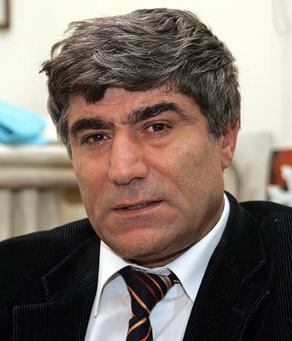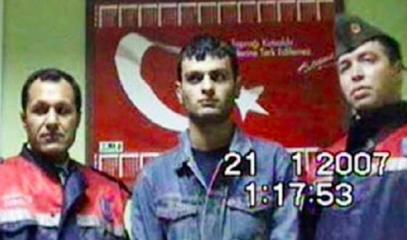Istanbul: Hrant Dink's killer released for 'good behaviour'
Ogün Samast spent just under 17 years in prison. He was a minor at the time of the crime whose motives and principals remain unknown. For the Dink family’s lawyer, his release is a "secret amnesty". For an opposition leader, he “was supposed to stay for life". According to the Human Rights Association, a "murderer" is free.
Istanbul (AsiaNews) – There is bewilderment, anger and the feeling - once more - of justice denied and impunity for those who target people fighting for peace, justice and rights in Turkey.
After serving more than 16 years in prison, the murderer of the Armenian Christian journalist and intellectual Hrant Dink has been released for good behaviour.
In a statement, the Turkish Ministry of Justice notes that existing legal rules were followed and Ogün Samast – who at the time of the crime was 17 and therefore a minor - did not benefit from any preferential treatment.
Still, many activist and opposition groups see it as a case of double standards in the way the law is administered, because the killer - whose instigators remain unknown to this day – did not have to answer for any aggravating circumstances connected to terrorism that would have prolonged the terms of the sentence.
Ogün Samast left Bolu Type F prison yesterday on parole for "good behaviour" after 16 years and 10 months. During the past year, guards closely monitored him to validate his good behaviour.
“There was a possibility of him being released earlier. But it was postponed because he committed other crimes in prison,” said Bahri Belen, one of the Dink family's lawyers, speaking to the Gazete Duvar.
“He was released with the help of the execution laws that were introduced later, in other words, with a ‘secret amnesty’,” he added.
Following the assassination, he fled the scene of the crime, but was arrested the next day at the bus terminal in the city of Samsun in northeastern Turkey. The policemen who caught him hailed him as a hero, with two officers posing with him behind a Turkish flag for a photo.
An ethnic Armenian, Hrant Dink was a passionate and competent journalist; he was shot four times at point-blank range in front of the headquarters of Agos, the newspaper he edited, on 19 January 2007.
His killer, Ogün Samast, was an unemployed 17-year-old at the time of the murder; he confessed to the crime and was sentenced to 23 years in prison in 2011. In addition, in 2021 the court imposed four more life sentences, but the whole affair and who is behind it were never really elucidated.
Two years before the killing, in 2005, the authorities had tried Dink for writing about the Armenian genocide of 1915, which the Turkish government denies.
His death stirred the consciences of many people in Turkey and more than 100,000 people attended his funeral, recognising the work of an intellectual who strived for reconciliation between Turks and Armenians.
In January 2021, a youth centre in Istanbul dedicated to his memory was inaugurated.
Bulent Aydin, of the Friends of Hrant Dink group, previously noted that "it is not yet known exactly what are the mechanisms that led to planning and committing the crime."
Turkish authorities blame Islamic preacher Fethullah Gülen and his organisation. Once an ally of President Recep Tayyip Erdogan, Gülen was accused of being behind the failed coup of July 2016.
During a commemoration of the assassination in January 2020, the journalist's widow denounced an attempt to conceal the state's responsibility.
News of Samast's release has sparked strong reactions among politicians, human rights activists and ordinary Turks.
Samast “was supposed to stay for life,” said Özgür Özel, leader of the main opposition party, the Republican People's Party (CHP).
“We have no words to say. If Ogün Samast is released for good behaviour, anyone who talks about justice after this is truly unscrupulous,” he added.
“This is such a dystopian country!” noted Human Rights Association's (İHD) co-chair Eren Keskin.
“Gültan Kışanak, Selahattin Demirtaş, Osman Kavala, Can Atalay are in jail only for their thoughts, but the murderer is free! The consequences of discriminatory execution law.”
“'Good behaviour,’ which they did not even apply to sick prisoners, was applied to the murderer!” Keskin added.
19/01/2022 20:29








.png)










